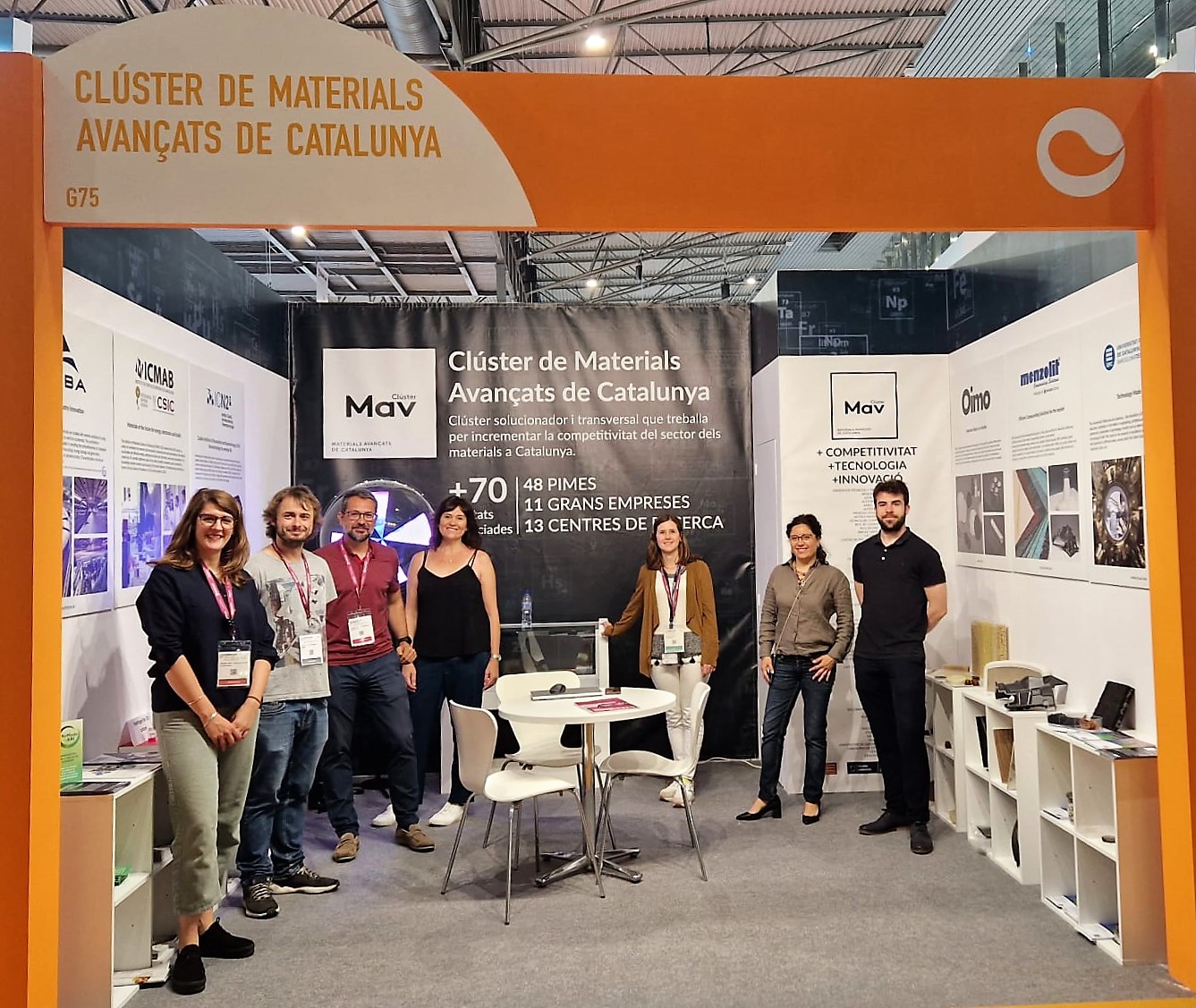Thursday, 01 June 2023
ICN2 participates with Clúster Mav in EQUIPLAST 2023 for sustainable solutions in the plastics and rubber sectors
The ICN2 took part in the four-day international meeting event for chemical and plastics industries to present some of its newest technologies in the field of novel materials for a sustainable future. Reinforced by the co-participation with the Clúster Mav and five of its other members, our Business and Innovation professionals looked for new collaborations and partnerships.

EQUIPLAST 2023, a leading exhibition dedicated to showcasing innovative and sustainable solutions in the plastics and rubber sectors, has taken place at the Fira de Barcelona between May 30 and June 2, together with EXPOQUIMIA. Held this year under the slogan 'Connecting industry, society & sustainability', the event is a privileged platform to promote the latest advancements in the plastic industry with a special view towards the transition to a circular economy, decarbonisation and climate neutrality.
The ICN2 has participated in this important 'rendezvous with technology' (as it did in the edition of two years ago), this time in collaboration with the Advanced Materials Cluster of Catalonia (Clúster MAV), of which is part. We shared the same stand together with other five members of the cluster: ALBA Synchrotron, ICMAB, OIMO, Menzolit and CIT UPC. The Clúster MAV is a non-profit, technology-based association connecting research centres and companies working in the advanced materials sector with the goal of making them more competitive.
Claudia Nieva, Business Developer from the ICN2 Business and Innovation Area, was present at the booth and arranged meetings with potential partners and collaborators to present and discuss some of the latest technologies in the field of advanced materials developed at our institute. Industrial showrooms are perfect meeting places where ICN2’s innovation and technology transfer experts can identify and get in touch with companies that are trying to solve problems for which our technologies may provide a solution. The co-participation in the event with other members of the Clúster Mav also sparked ideas for new possible partnerships within the cluster for future projects.
Among the newest business opportunities that he ICN2 brought to Equiplast 2023 are: versatile nano- and micro-encapsulation techniques, coatings procedures that add specific functionalities to surfaces, a novel air disinfection system against airborne pathogens (STERILAIR), as well as a promising technology to capture CO2 directly from the air and mineralize it onto solid surfaces (LIGHTNET). Two existing spin-offs, one that emerged from research carried out at the ICN2 and the other with which we collaborate, took part in the event as well, both presenting a prototype of their technology: Futurechrome, which produces photochromic materials for smart windows, and SIMUNE Atomistics, which develops atomic scale simulation techniques and software for materials science.
Equoplast+Expoquímia included a large showroom for exhibitors and a rich programme of conferences and workshops on new technologies and materials for sustainability. Each of the four days was dedicated to a specific topic –i.e., hydrogen, circular economy, digitalization, and technology transfer. In a shared ‘Tech Transfer & Innovation Area’, dozen European spin-offs, start-ups and teams leading research projects linked to chemistry and plastics had the opportunity to share their vision, present their products and establish new connections.
The list of activities is completed by the Equiplast exhibition “Rethinking Plastics”, fully dedicated to a variety of products and everyday objects made from 100% recycled, biodegradable or renewable plastic, such as: backpacks, packaging, furniture, household items, pallets, films, dumbbells, mobile phone covers, wastepaper baskets, and much more.
The participation of ICN2 in this important event reflects our institute's commitment to contributing to the development of green solutions in the plastics and new materials sectors, in order to address some of the critical challenges facing our society, as well as to promoting collaboration and cross-fertilisation for a more sustainable future.

